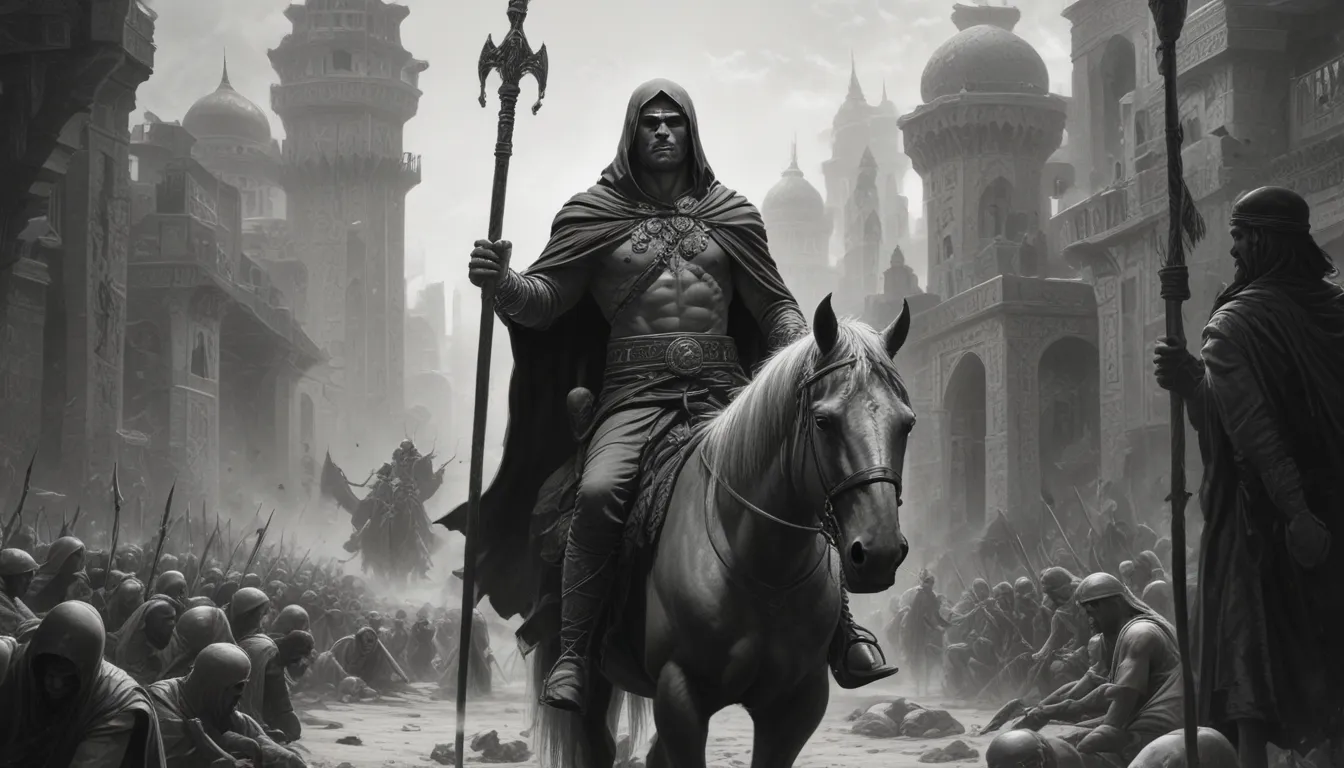The images in our articles are for illustrative purposes only and may not exactly match the content. They are intended to capture your interest and complement the text, not to replace it.
Kerbala, a city nestled in the heart of Iraq, holds a special place in the hearts of many. With its deep-rooted history and cultural significance, Kerbala draws in millions of visitors each year, immersing them in a world of religious pilgrimage sites, stunning architecture, and vibrant cultural festivities. Join us as we unravel the captivating facts about this ancient city, delving into its historical events, rich heritage, and warm hospitality that make Kerbala a must-visit destination for explorers, history enthusiasts, and religious pilgrims alike.
Unveiling the Historical Significance of Kerbala
One of the most defining moments in Islamic history is the Battle of Kerbala that took place in 680 AD. This pivotal event shaped the establishment of Shi’a Islam and continues to resonate with followers to this day.
Embarking on a Spiritual Journey Through Religious Pilgrimage
Kerbala stands as one of the holiest cities in Shia Islam, attracting millions of pilgrims annually, particularly during the poignant commemoration of Ashura. The city’s significance is heightened by the presence of the mausoleum of Imam Husayn, the beloved grandson of Prophet Muhammad.
Marveling at Architectural Wonders in Kerbala
The Imam Husayn Shrine in Kerbala is an architectural masterpiece, adorned with intricate tile work, golden domes, and elegant calligraphy. These elements reflect the opulent heritage of Islamic art and design, offering visitors a glimpse into the city’s cultural richness.
Commemorating the Martyrdom and Tragedy of Imam Husayn
Imam Husayn’s martyrdom during the Battle of Kerbala symbolizes a pivotal moment of sacrifice and resilience in the pursuit of justice and Islamic principles. Each year, the tragedy of Ashura is reenacted in Kerbala, allowing mourners to express their grief and solidarity with Imam Husayn.
Immerse Yourself in Cultural Festivities and Marketplace Delights
Beyond its religious significance, Kerbala comes alive with cultural events, music performances, traditional dances, and captivating storytelling. Visitors can also explore vibrant marketplaces filled with local crafts, spices, textiles, and traditional goods, offering a glimpse into the city’s bustling atmosphere.
Embracing Spiritual Serenity and Natural Beauty in Kerbala
Kerbala exudes a tranquil ambiance, providing visitors with a serene space to seek solace and spiritual connection. Surrounded by the picturesque landscapes of the Euphrates River, the city offers a harmonious blend of nature and spirituality for those who appreciate its peaceful allure.
Engaging in Educational Pursuits and Spiritual Traditions
Kerbala hosts various educational institutes, including the renowned Islamic Seminary and Al Hussein University, attracting students from around the globe to delve into the realms of Islamic theology and jurisprudence. The city’s spiritual traditions, such as the Arbain pilgrimage and Ziyarat, offer visitors profound insights into religious practices and cultural heritage.
Celebrating Cultural Exchanges and Religious Tolerance in Kerbala
Kerbala’s multi-religious identity and diverse population reflect a harmonious coexistence of different faiths. The city promotes religious tolerance and serves as a hub for cultural exchanges, fostering understanding and dialogue among communities worldwide.
Savoring Local Cuisine and Experiencing Warm Hospitality
Indulge in the delightful flavors of Iraqi cuisine in Kerbala, featuring mouthwatering dishes like biryani, kebabs, and traditional sweets. The city’s welcoming hospitality ensures that visitors feel at home, creating a warm and inviting atmosphere for all who venture to its streets.
Discovering Cultural Museums and Artistic Treasures
Kerbala’s cultural heritage is preserved through its museums, such as the Kerbala Museum and the House of Wisdom Library and Museum, offering insights into the city’s rich history. The art of calligraphy thrives in Kerbala, with intricate Arabic script adorning mosques, shrines, and public spaces, showcasing the city’s artistic prowess.
Navigating Through Historical Monuments and Modern Amenities
Explore Kerbala’s historical streets and monuments that narrate the city’s vibrant past, providing a glimpse into its deep-rooted heritage. The city’s hospitality industry flourishes with a range of accommodation options, ensuring a comfortable stay for visitors seeking to immerse themselves in Kerbala’s cultural tapestry.
The Essence of Kerbala: A Spirituality Beyond Borders
Embark on a journey of discovery in Kerbala, where history, culture, and spirituality converge to create a captivating destination for all who seek an enriching experience. Whether you’re drawn to the city’s religious significance, architectural wonders, or cultural festivities, Kerbala offers a glimpse into a world steeped in tradition and profound meaning. Let the spirit of Kerbala guide you through its compelling narratives and timeless allure, inviting you to explore the depths of its heritage with an open heart and mind.
FAQs About Kerbala
- Where is Kerbala located?
-
Kerbala is situated in central Iraq, approximately 85 kilometers southwest of Baghdad.
-
What is the significance of Kerbala?
-
Kerbala holds great significance in Islamic history as the site of the Battle of Kerbala, where Imam Husayn was martyred. It is revered as one of the holiest cities in Shia Islam.
-
Is Kerbala safe for visitors?
-
Kerbala is generally safe for visitors, but it is advisable to exercise caution and stay informed about the local security situation.
-
What attractions can I visit in Kerbala?
-
Some notable attractions in Kerbala include the Imam Husayn Shrine, the Abbasid Court, the Al-Abbas Mosque, and the Al-Kadhimiya Mosque, each offering unique insights into the city’s religious and historical heritage.
-
When is the best time to visit Kerbala?
-
The holy month of Muharram, particularly the day of Ashura, is considered an ideal time to visit Kerbala. However, due to the high influx of visitors during this period, planning ahead is recommended.
-
Can I take photographs inside the religious sites in Kerbala?
- Photography is generally prohibited inside religious sites in Kerbala out of respect for the religious customs and practices observed in these sacred spaces.
Kerbala beckons with its tales of courage, faith, and resilience, inviting you to explore its enchanting landscapes and profound heritage. Whether you’re seeking spiritual enlightenment, historical insights, or cultural immersion, Kerbala promises a journey of discovery like no other. Join the countless pilgrims and explorers who have ventured to this sacred city and let the essence of Kerbala touch your soul with its enduring spirit and grace.






